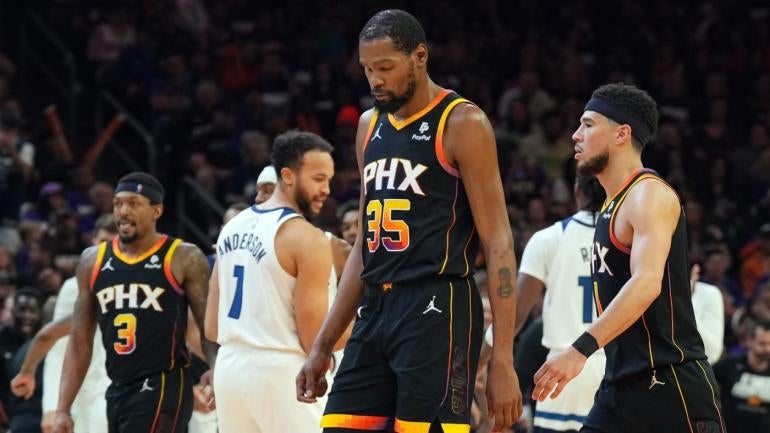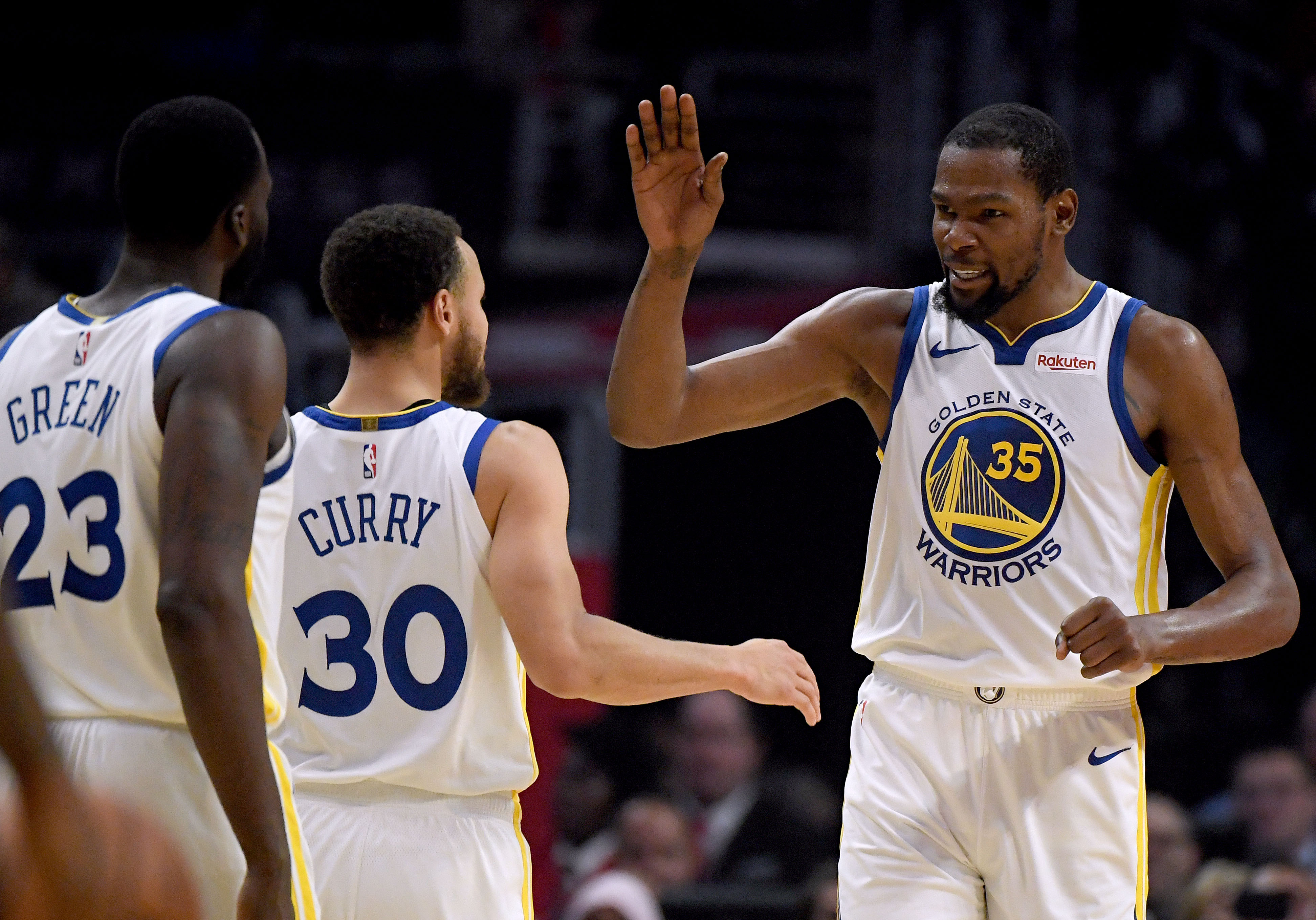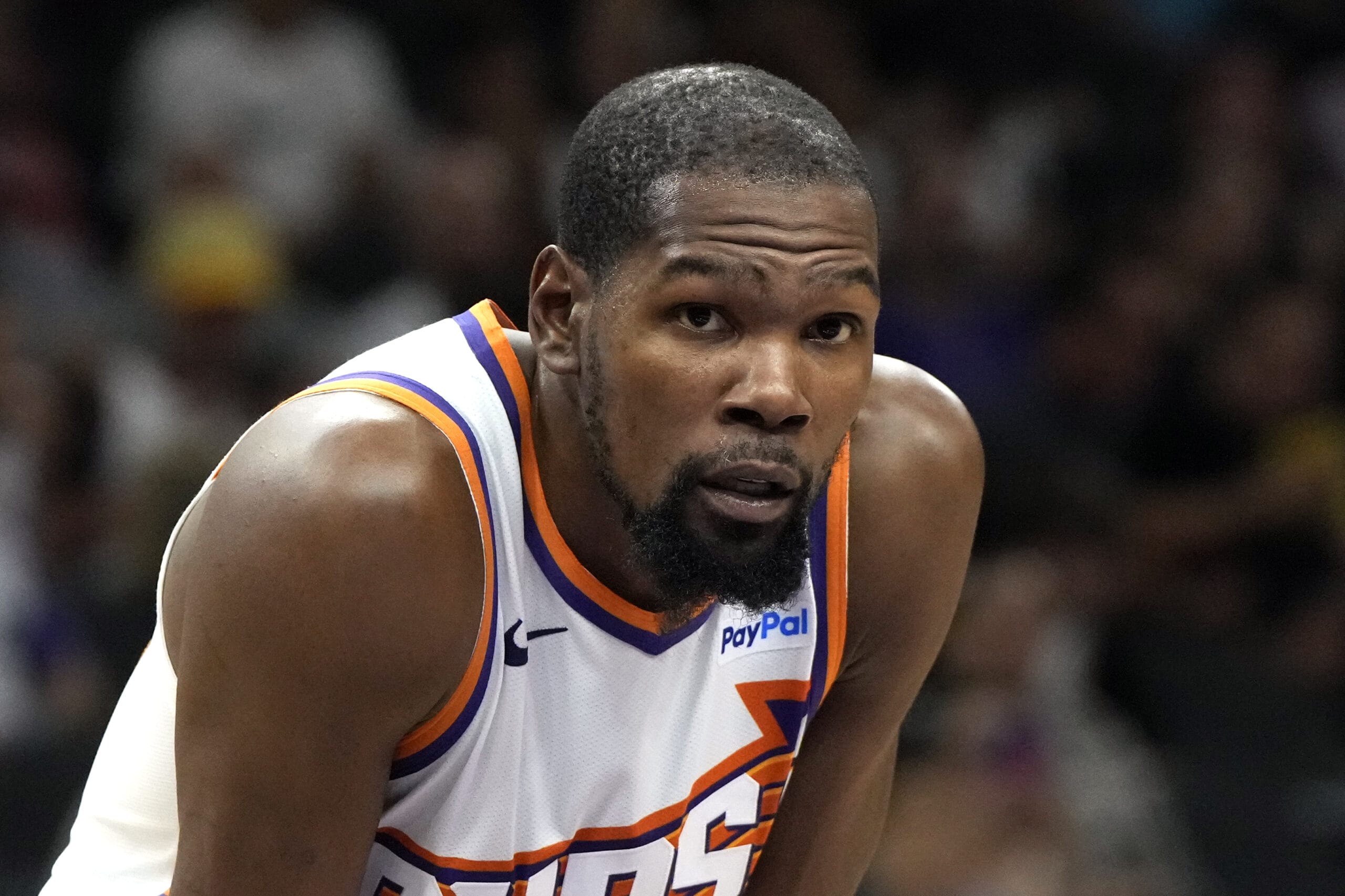The Minnesota Timberwolves are about to overwhelm the Phoenix Suns in the opening round thanks to their oppressive combination of rim protection and perimeter pressure, which is severely hindering Kevin Durant’s game. Durant was only 8 for 18 from the field at the end of Game 3. In this series, he has missed 19 of his previous 33 shots. For Durant, there is almost a crisis here.

He doesn’t have it any easier from the Suns, who move around as much as cement and strive to subsist on the most unhealthy shot diet imaginable. But Durant plays a particular kind of basketball that he likes. It’s also not functioning.
When Durant left the Golden State Warriors in 2019 to try to superteam his way to post-Stephen Curry validation, he will be 2-4 in six postseason series. That is, unless the Suns become the first team in history to win a best-of-seven series after falling behind 3-0.
On his own, Durant has proven himself quite innocent. Despite his shock-jock reactions, he never had anything to prove in that sense to begin with. Both before and after forming a partnership with Curry, he was extraordinary. But when you’re playing basketball mostly by yourself, it gets really tough, even for a player as talented as Durant, which is why the playoff losses are mounting.

It’s not that Durant doesn’t have support in Phoenix; on the other hand, he had support in Brooklyn during the times the Nets were healthy, which was, to be honest, never entirely the case throughout the postseason. However, Durant has primarily partnered with smaller versions of himself in these specific guys. Kyrie Irving and Devin Booker are achievers who make things mostly for themselves. Despite being an overqualified spot-up shooter, Bradley Beal isn’t good enough in Phoenix to demand equal creative rights.
Booker in particular has a fixation on the midrange. Apart from the obvious reality that they detract from each other as any two superstars do, he and Durant combined can only add up to their individual scoring totals. In other words, they don’t necessarily make things easier for each other. Despite their individual talent, the Warriors’ ball and player movement made them greater than the sum of their parts. The Curry factor has always been exponential and always will be.
Basketball has never been easier for Durant than it was the season he moved to Golden State, when he set a career high with a true shooting percentage of 68% in the postseason. As Cleaning the Glass notes, Durant averaged 130.1 points per 100 shots over three playoff seasons with Golden State, which surpassed any single-year playoff mark of scoring efficiency he had with any other team. In fact, the five best single-series shooting clips of Durant’s playoff career all came with the Warriors.
It’s not by accident that. To put it plainly, his shots against the Warriors were simpler. Durant has been the defensive team’s main man in the entire game both before and after. Curry carried the load for Golden State most of the time, and the team’s unplanned movement made it difficult for opponents to press Durant’s signature scoring positions.
For instance, according to Synergy, only 10% of KD’s playoff possessions during that 2016–17 playoff run were isolations. Additionally, 56% of his baskets were assisted, meaning he didn’t have to generate them on his own. In contrast, isolations accounted for 25% of Durant’s scoring possessions during his first postseason run in Brooklyn, while only 44% of his baskets were assisted.

This pattern has persisted in Phoenix, where he isolated on 25% of his postseason possessions the previous year and is currently doing so on 26% of his possessions versus Minnesota this season. Naturally, Durant is a deadly one-on-one scorer, so even though the level of difficulty may be more than necessary, he will get his stats (24.7 PPG on 50% shooting) through the first three games of this series, based on an 11-for-17 performance in Game 1.
Once more, Durant plainly enjoys this more competitive, traditional style of midrange basketball, even though, on the whole, teaming up with Curry gave the impression that he was favoring the easy route.
You could see that Durant wanted to play his way even in his second season with the Warriors, 2017–18, after he spent his first season fully surrendering to Golden State’s system. Not coincidentally, Durant’s efficiency dropped during that playoff run, as his isolation rate increased by 17% from his first playoffs with the Warriors. In those postseason games, Durant shot 49% overall, including 34% from three, a decrease from his previous year’s 56% and 44%.

It made no difference. Although Durant averaged 29 points per game during those playoffs, the Warriors emerged victorious. However, he is no longer 29 years old and is not a member of the Warriors. Even if he was still a First-Team All-NBA player this season at the age of 35, the damage is still mounting.
Durant played in slightly under 38 minutes per game on average over his three postseasons with the Warriors. Since then, he has averaged just under 42 minutes each postseason run. I guess the bright side is that Durant’s total playoff minutes have decreased because he hasn’t advanced past the second round with either Brooklyn or Phoenix. Naturally, though, that has been the issue. He’s not coming out on top.
Since departing the Warriors, Durant has played in 36 postseason games and is 16–20. To be clear, unless you want to hold him accountable for his involvement in the original collaborations between Kyrie and Booker, as well as the following signings of James Harden in Brooklyn and Beal in Phoenix, none of that is his fault. His GM résumé may not be the best.
But he has an impeccable basketball resume. This is by no means an attempt to criticize Durant as an all-time great player, nor is it an attempt to offer my opinion on his choice to join or leave the Warriors. He had justifications for each. He has rights. I’m only stating that since he left the Warriors, Durant has found basketball to be a more challenging sport.

That may have been his intention. The competitors are drawn to the task. Even if you’re going to criticize him for joining the Warriors, who are already a legendary club, you have to admit that over the past five years, he’s chosen to accept a rather steep learning curve rather than simply quitting the team and playing catch-up.
It should be mentioned that the Warriors have also encountered significant challenges in their post-Duran lives. Three of the previous five years have seen them miss the playoffs. However, the 2022 title made all of the difficulties worthwhile. Durant has yet to receive that reward. Not even near has he come. It’s almost dusk in Phoenix, and Kyrie and Harden destroyed his time in Brooklyn.
Durant will turn 36 the next year. There isn’t much room for improvement for the Suns. He’s capable of executing the trade-demand strategy once more, but to what end? It’s great to see Durant’s post-Warriors ambition, and he would never, ever admit remorse. But he can look back and reflect on how wonderful he had it before, even as winning and the game itself continue to demand an increasing amount of his skill and energy.